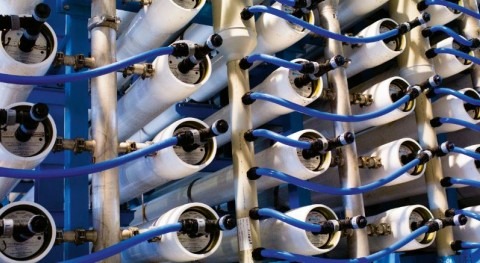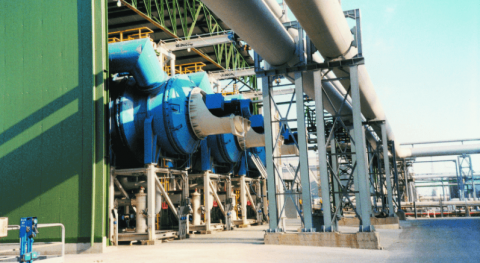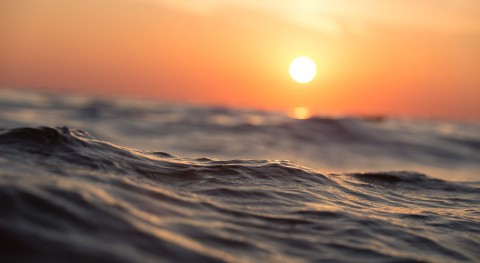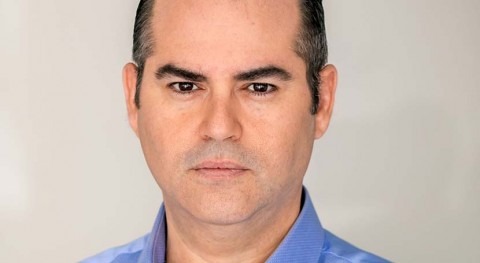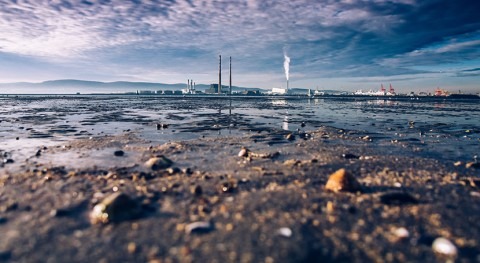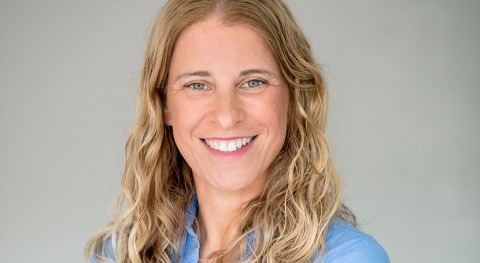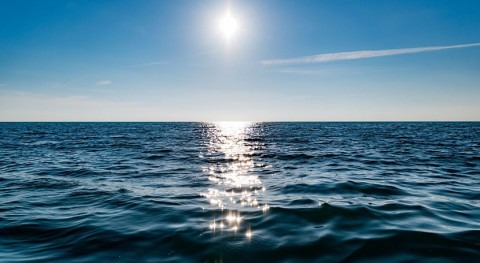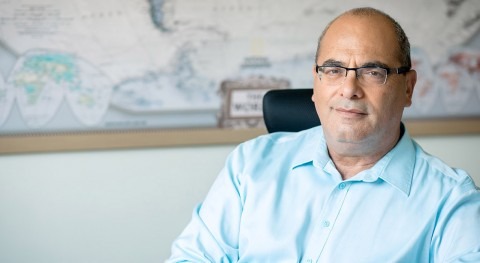As one of the hardest-hit areas in the world in matters of intrusion of saline groundwater, many parts of Asia struggle to find access to safe drinking water. Climate change is expected to aggravate this problem, as sea level rise will cause more saltwater intrusion into coastal and groundwater resources. Certain Asian countries are currently turning to desalination technologies to provide drinking water.
With almost a decade of experience in promoting and selling different types of water treatment systems, we interview Chen Rosenfeld, Sales and Solutions Manager at IDE Technologies, to learn a bit more about the latest desalination technologies being used in Asia, and more specifically in Singapore.
Rosenfeld is a graduate of the Technion – Israel Institute of Technology, and holds a bachelor’s in environmental engineering, with a focus on water and wastewater treatment processes and membranes technologies.
Question: What are the main challenges of the desalination sector in Asia?
Answer: The main challenges facing countries wanting to adopt desalination is a regulatory framework that will allow for Public-Private-Partnership (PPPs) and long-term concessions, so private initiatives and investments will provide the needed capital and expertise to implement desalination at a very competitive and affordable cost. Streamlined environmental permitting and other permitting processes also pose a challenge in Asian countries, as well as the distribution networks and STPs when it comes to utilities.
The main challenges facing countries wanting to adopt desalination is a regulatory framework that will allow for Public-Private-Partnership (PPPs) and long-term concessions
Q: And specifically, what are the challenges of this sector in Singapore?
A: Desalination is still a very small portion of the overall water balance in most Asian countries, including Singapore. In addition, the impact of desalination on the ratepayer can be a challenge for local and state utilities and governments.
Currently Singapore desalinates 25% of its water demand and PUB, the Public Utilities Board, is set to reach the 30% mark by 2060 ahead of the 2061 expiration of the Water Transfer Agreement with Malaysia. On the same note, PUB plans to expand NEWater, Singapore's brand name for potable quality water produced from treated sewage, to meet roughly 55% of the national water demand by 2060. In Singapore, there are currently four large desalination plants which serve as part of the four main sources of water for the country.
.jpg)
Chen Rosenfeld, Sales and Solutions Manager at IDE Technologies
The current NEWater plants technology uses chemicals like chloramine, a combination of chlorine and ammonia, can be quite toxic to the environment and when used as a disinfectant in water, chloramine can be fatal to fish and frogs. When used for water treatment, chloramine can cause a 50% increase in power consumption and its byproducts can have detrimental effects on humans. Chloramine can form N-Nitrosodimethylamine (NDMA) which is an organic contaminant suspected as carcinogenic. IDE is offering a new approach for water reclamation, Eco-Reuse. With eco-friendly water solutions, no chemicals are used in the process to clean or disinfect the water which protects everyone from the effects of harmful chemicals and Asia is leading the way in adoption of these solutions.
Desalination is still a very small portion of the overall water balance in most Asian countries
Q: What are the advantages of desalination in coping with water scarcity in Asia?
A: IDE sees tremendous potential in the emerging Asian water industry for desalination. There is more and more acceptance of this drought-proof solution, and the costs associated with it are being viewed as a sustainable and socially-responsible alternative to our global reliance on depleting freshwater sources. In Asia, there will continue to be increased focus on eco-friendly water solutions.
Q: Why do you think countries in Asia invest more in desalination than European countries?
A: Desalination of seawater and brackish water is widely accepted and used in Asia, and while Singapore is spearheading these efforts in the region, Taiwan, Thailand, India, China and Korea are also adopting this drought-proof solution to secure drinking water, as water scarcity continues to be a growing problem. Singapore’s commitment to less reliance on freshwater sources and an increased focus on eco-friendly solutions for water scarcity has contributed to greater acceptance of desalination in the region.
Asia also needs to invest in alternative water sources like desalination as its mining sector continues to grow. The global mining industry is considered to be the fourth largest industrial user of water during daily operational activity. Water is essential during every stage of the mining process, and the bulk of the assets of major mining companies are in water-stressed regions such as China where copper and other precious metals are mined.
In Europe, however, mining activity is significantly lower than in Asia. There are also 17 landlocked countries in Europe compared to 12 in Asia. Pumping desalinated water to these countries can be a highly expensive process. As such, desalination is a less cost-effective solution for landlocked European nations.
Q: What are the latest technologies being used in this sector?
A: One of the latest technologies of IDE is the MAXH2O DESALTER, which aims to effectively reduce brine reject from brackish water desalination plants by ensuring a more durable and efficient process. To increase brine recovery of brackish water reverse osmosis (BWRO) desalination plants, the MAXH2O DESALTER technology integrates a proprietary reverse osmosis (RO) system with an integrated salt precipitation unit, which together overcomes the traditional limitations of brine recovery systems. The MAXH2O DESALTER also addresses other challenges such as scaling from sparingly soluble salts, and organic fouling and biofouling, without the use of additional chemicals. Increasing the BWRO plants recovery, thus reducing the amount of rejected brine from these desalination plants, helps to meet global water demands while reducing the environmental impact of brine. The technology increases water recovery and benefits both municipal and industrial applications such as mining sites, power stations and cooling towers. Early pilots of MAXH2O on both existing and new BWRO desalination plants have shown an increased brine recovery of up to 98 percent.
Q: What does IDE Technologies provide that other companies do not?
A: IDE Technologies is focused on environmentally-friendly methods that use fewer chemicals and less energy and are ultimately more sustainable over the long term for municipalities and industries alike.
IDE is the first company to develop a chemical-free pre-treatment and desalination process for seawater. Known as IDE PROGREEN™, this process is a cost-effective approach for water production which also reduces energy consumption. IDE PROGREEN™ produces clean water from standard seawater without the use of any chemicals. The solution is offered as a ‘plant in a box’ or a modular design that is portable and easy to install, thus keeping operations and maintenance costs to a minimum and eliminating the need to invest in expensive infrastructure. It is designed to increase ROI and provides a complete solution in one neat compact package; it is available in a wide range of capacities from 1,000 m3/day to 20,000 m3/day.






